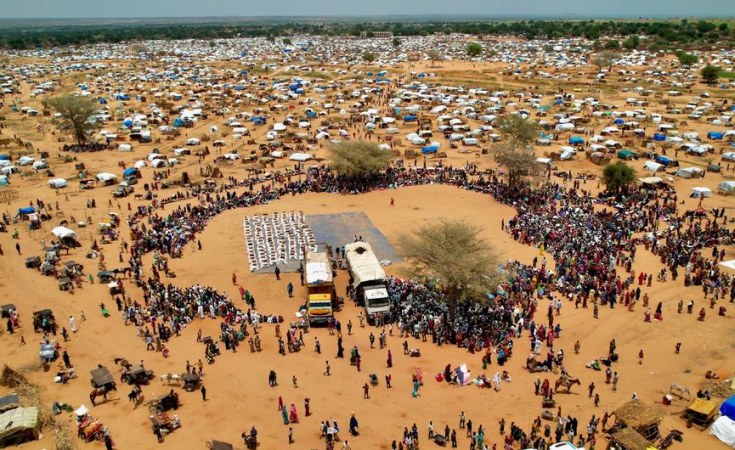Misteriya — Mahameed clan chief and former Janjaweed leader Musa Hilal yesterday announced a reconciliation initiative between the Beni Halba and Salamat tribes that have been fighting each other for nearly two months.
In early August, clashes broke out between Beni Halba and Salamat tribesmen in South Darfur's Kubum. Several efforts to reconcile the cattle herders failed so far.
Both tribes are 'Arab' cattle herders. The stronghold (dar) of the Beni Halba lies in Ed El Fursan. The Salamat settled in Um Dukhun more than two decades ago.
Musa Hilal, chief of the Arab Rizeigat Mahameed clan, former janjaweed leader, and head of the Revolutionary Awakening Council (RAC), yesterday announced a reconciliation initiative to put an end to the fighting that has left hundreds of tribesmen dead.
RAC spokesperson Ahmed Abakar told Radio Dabanga that "Sheikh Musa Hilal will lead the initiative as head of the council and native administration* leader, along with other native administration notables and community figures from Darfur and some other states of Sudan".
He said that "the root causes of the clashes need to be defined and addressed, to stop them forever".
The spokesperson added that the war "now taking place in Khartoum and some states is political, not tribal," and called on the Sudanese "to not take it as an entry point for hate speech, tribalism, racism, and social segregation".
* The Native Administration was instituted by British colonial authorities seeking a pragmatic system of governance that allowed for effective control with limited investment and oversight by the state. The state-appointed tribal leaders were also responsible for executing policies, collecting taxes, and mobilising labour on behalf of the central government. According to the Darfur Bar Association (DBA), the Native Administration during the 30-year rule of dictator Omar Al Bashir did not represent the real community leaders.


